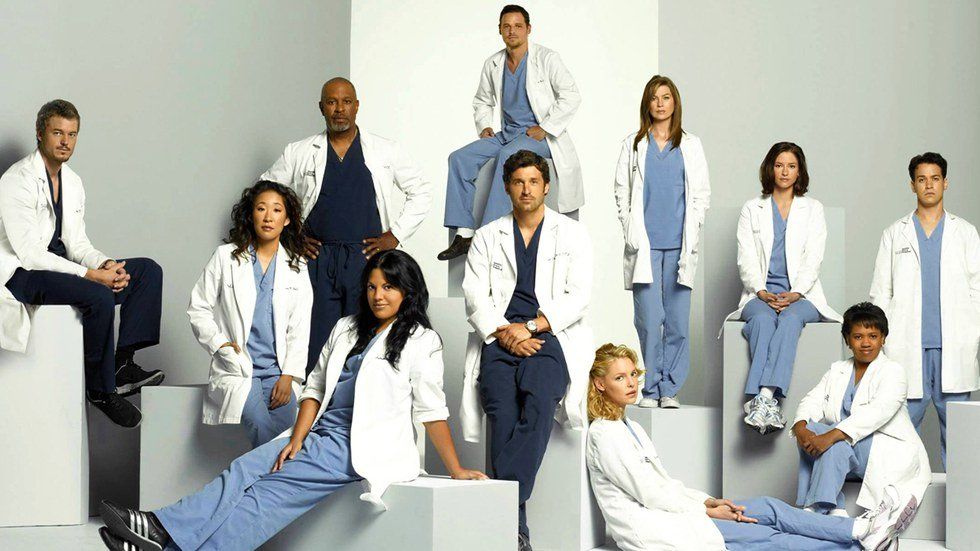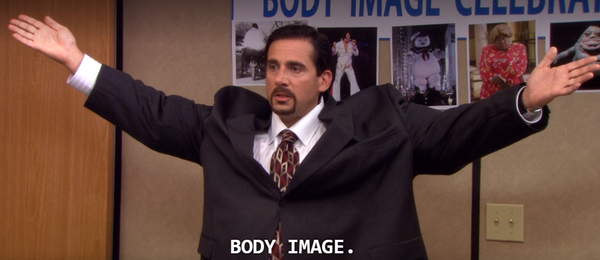Television drama is enticing. The heart beats harder, the blood starts pumping, the adrenaline kicks in, and the events build up and move faster and faster. Much of America’s television entertainment is drama. With the average American viewer watching between two and seven hours per day, many dedicate time to watching drama unfold in front of their eyes on television. But combine medical jargon with attractive actors in a hospital setting, and Americans are hooked.
Medical dramas are of the highest rated and most critically acclaimed shows on television; Grey’s Anatomy, Scrubs and House M.D. are just a few examples. In medical shows, viewers witness major surgeries, unique patients, and the advancing technology of healthcare. Viewers also witness medical professionals’ sexual activity, life-altering procedures and uncomfortable situations that cause the ears to perk up and the eyes to focus in. The fast-paced and dramatic atmosphere surrounding medical shows allow television producers to lure an audience. The producers combine a connection between America’s enticement with drama and the people they may encounter daily in their society to formulate medical shows. Because medical professionals are seen -- on and off television -- providing care through vaccinations, surgeries, and listening to patients’ concerns, it is not unusual to see the profession dramatized on television but representation matters. Yes, even on reality television.
For medical dramas, accuracy is essential to further the show’s plot so the “medical professionals” can provide care to patients. Entertainment industries hire certified medical personnel to help script shows which contributes to the authenticity by using correct terminology and accurate scans or tests for specific conditions. Also, Americans who watch medical dramas learn about rare diseases such as ALS (Amyotrophic Lateral Sclerosis). Through correct terminology and disease awareness, medical dramas possess the power to frame a society that notices their surroundings and health risks, while providing a chance for medical personnel to educate society on conditions they believe deserve more attention.
But, those who watch television fail to understand the false reality the media creates for entertainment. Although the media industry attempts to portray what they believe is reality, the well-being of the public takes a backseat to entertainment. According to Professor Yinjiao Ye, watching medical shows leads to behavioral changes in viewers. McDreamy fans from Grey’s Anatomy or Dr. House enthusiasts from House M.D. develop hypochondria along with reduced satisfaction with life. Not only do viewers struggle against life-threatening behavioral changes as a result of watching television, but the fast-paced and enticing environment the scriptwriters cultivate for medical shows misleads people into working in public health. Americans who work in public health solely because of what they see in medical shows mimic the behavior of McDreamy, representing the devastating effects television can have on society. Both avid medical show viewers and the public neighboring them face fatal consequences of the production of medical sitcoms. Dramatized medical shows skew perceptions of the medical workforce and cause innocent lives to be lost. The fallacies presented throughout popular televised medical dramas are to blame.
Although medical dramas generate awareness of rare conditions and this is necessary for a greater research effort, the shows under-represents illnesses known to cause more casualties. Since less attention is brought to the more significant conditions, viewers may not understand the magnitude of those illnesses and diseases. For example, viewers of medical dramas have a more fatalistic perspective of cancer but do not realize heart disease is currently the number one cause of death in the United States. This can be dangerous because it threatens the treatment of the less exciting conditions. Similarly to misconceptions of illnesses and conditions, viewers watching televised medical dramas may believe America’s healthcare is an immaculate system. In medical shows, words like “co-pay,” “medicaid,” and even “insurance” hardly appear, and all patients are treated regardless of insurance status or payment options. However, this is not true of authentic medical facilities in America. Over $1.9 trillion dollars is spent on healthcare to create a system much like what is presented in medical shows but even with this excessive amount, no significant changes occur to the system. Moreover, medical dramas allude to a perfect healthcare system or avoid discussing the system altogether, focusing more on doctor-patient or doctor-doctor interactions. Although the entertainment industry use dramatic factors to lure an audience, the viewers may believe healthcare does not need reform and will not contribute to transform the system for the better.
And even though scriptwriters sometimes receive help from certified medical personnel, the scriptwriters decide what makes the final cut. This means that writers may omit necessary routines and procedures to care for a patient’s health needs on television either for timing or to add more events in one episode. By avoiding criteria authentic medical professionals follow, fallacies are shown to future medical professionals and patients. In a first aid research study of medical shows, Dr. Andrew and Jeremy Moeller from Dalhousie University discovered that almost half of the responses to seizure cases were inappropriate and life-threatening. The Moellers’ are presenting their 280 hour medical marathon to the American Academy of Neurology to schedule protests against entertainment industries and release warnings of the harmful actions in medical programs. Dr. Andrew Moeller believes seizure victims should even attempt to stay away from Americans who watch medical dramas because of the likelihood that their life will be at risk from inappropriate responses. Along with incorrect CPR procedures, medical students are fatally inserting breathing tubes, resulting in innocent lives lost. Medical students are conducting incorrect procedures because they base their knowledge from medical dramas on television. “I see students all the time who show up and act like their favorite doctor on TV” said Dr. Elizabeth Sinz, a professor of anesthesiology at Penn State’s Milton S. Hershey Medical Center. Medical students are the future of medicine and will be the next generation of doctors caring for the children, the elderly, and other victims of contagious diseases. But the true disease is the medical students who desire to be like a doctor on television because they risk the lives of those who they are suppose to be protecting. If medical shows are continuously being aired, more innocent lives may be at stake.
However to address the fallacies of healthcare and its professionals, a possible solution may be to compromise by allowing only medical students to have the ability to watch medical dramas because learning the mistakes from their favorite TV doctors may ensure that they would not make the same mistakes on their own patients. Standardized courses can be implemented in medical schools’ curriculum to teach the doctor dramas’ mistakes. Although the money to implement such courses will come mainly from the taxpayers, the University of Chicago has already had success implementing similar courses. All medical schools should adopt television medicine in their curriculum because of the benefits they will bring. Even though there may be a drop in ratings as the entertainment industry tackles a more refined audience, by still allowing the ability to produce medical shows for students, job positions will not be at too great a risk. With a solution in place, the public will more realistically perceive healthcare professionals and have more trust for medical professionals when it comes to a person’s life.
Between Grey’s Anatomy, House M.D, or Scrubs, Americans cling to the love lives of the medical professionals and the dramatic atmosphere surrounding a patient’s condition in the shows. Whether a “doctor” handles the patient’s illness by providing the most effective treatment or by having sex with a coworker in the storage room, medical shows frame the minds of those who watch and then later subconsciously assert themselves on medical professionals in their society. The dramas can bring awareness to rare conditions but can also influence the public on how they treat their healthcare providers and how healthcare providers treat their patients. If Americans decide not to click “next episode” on Grey’s Anatomy, they are likely to experience a better healthcare system and -- even possibly save a life.





















